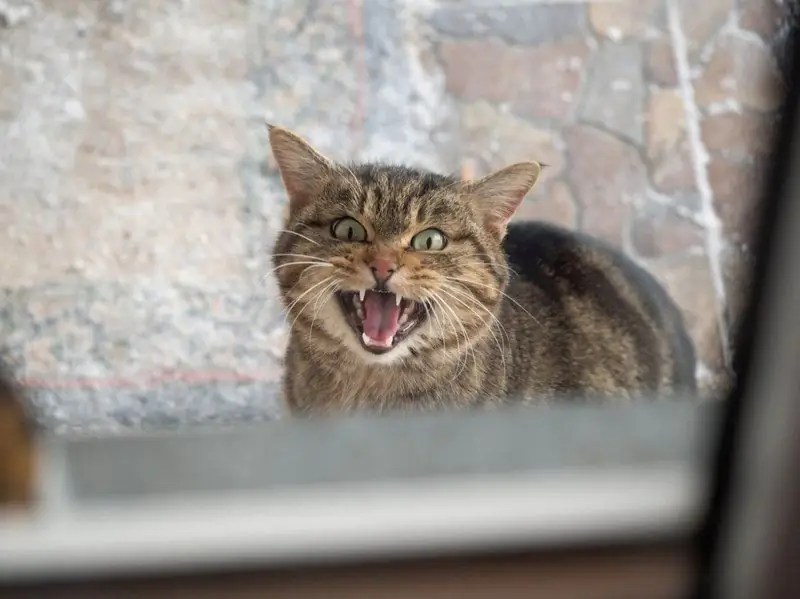
Table of contents:
- Author Bailey Albertson [email protected].
- Public 2023-12-17 12:53.
- Last modified 2025-01-23 12:41.
The disappeared "meow": the reasons for the loss of voice in a cat

Cats are endowed with the ability to communicate with the help of various sounds, in their arsenal there are hissing, growling, purring and, of course, the well-known characteristic meow. Some pets are more "talkative" and actively use their vocal cords, while others are quiet, and you rarely hear "meow" from them. But there are situations when the animal wants, but cannot make a sound - here the owner should think about why the cat's voice disappeared and what needs to be done about it.
Content
- 1 How does voice loss manifest in cats?
-
2 Reasons for loss of voice
-
2.1 Household situations leading to loss of voice in a cat
- 2.1.1 Stress
- 2.1.2 Poisoning by poisonous vapors and smoke
- 2.1.3 Ingestion of a foreign body in the pharynx
- 2.1.4 Dehydration
-
2.2 Pathological causes
2.2.1 Video: Veterinarian on Feline Rhinotracheitis
-
How does voice loss manifest in cats?
Every cat owner knows very well when a pet applies its sound activity. Usually pets use their voice to convey certain information:
- asking for food, reminding them of the feeding time;
- asked to leave or enter the room;
- remind of themselves, demanding attention;
- signal the onset of readiness for procreation.
If, in the usual situation, instead of the usual "meow" nothing is heard, the owner should pay attention to the cat. If the animal opens its mouth, but the sound is either very quiet or is absent altogether, it means that its voice has disappeared. When the problem persists after a few hours, it is worth looking into the cause.
Causes of loss of voice
There are many reasons for a cat's loss of voice, ranging from psychological to the development of serious diseases. They can be conditionally divided into two large groups:
- everyday situations;
- pathological conditions.
Domestic situations leading to loss of voice in a cat
When an animal loses its voice, it is necessary to assess the conditions of the surrounding space and understand whether something could cause a similar reaction. The owner's actions will completely depend on the current situation.
Stress
Cats are territorial animals, they get used to their home, mark it with their scent, outlining the property where they are most comfortable to be. Traveling by car, moving to another accommodation, temporary overexposure in a pet hotel - all this violates the boundaries of the pet's comfort and introduces it to a state of stress. A completely normal reaction to this may be the absence of habitual vocal signals - the cat does not meow, it can refuse to eat, does not leave its place, etc. Usually, in this case, the voice gradually returns on its own along with the animal's adaptation to the changed conditions.
You can speed up this process by giving your pet more attention and care. However, if the cat has already come to its senses, is leading a normal life, and there is still no voice, then it is worth contacting the clinic - perhaps there are still reasons for this condition.

A cat that has undergone stress may not speak at all for several days.
Poisoning by poisonous vapors and smoke
Usually cats avoid things with strong unpleasant odors, but inhalation of vapors may be sufficient for poisoning when they are in the same room with a chemical composition. Air freshener, nail polish remover, building paints and varnishes, gasoline - such substances in an enclosed space will become a real danger for an animal.
Typical symptoms of poisoning are hoarseness, loss of voice, and vomiting. Another household hazard is tobacco smoke combined with dry air. The smoke inhaled by the pet harms its vocal cords and the respiratory system, causing destructive processes in the mucous membranes, edema, and creating favorable conditions for the development of respiratory diseases. With the constant influence of the factor, the cat's condition will only worsen, which will require the help of doctors. Noticing that the cat suffers precisely because of problems in the air itself, the owner needs to get rid of their source: stop smoking in the house, take out dangerous building mixtures, and ventilate the room itself.

Secondhand smoke or constant inhalation of cigarette smoke can cause voicelessness in a domestic cat.
Ingestion of a foreign body in the throat
Very often cats, especially at a very young age, taste everything that comes their way. Small items, rustling candy wrappers, pieces of foil, and other attractive things can get stuck in your throat. In such a situation, the voice becomes hoarse or disappears, the animal coughs, experiences an instinctive urge to vomit so that the foreign object comes out.
This will require urgent help from the owner, because if the cat continues to actively try to free itself, there is a high risk of injury to the larynx and esophagus. The pet needs to be fixed and try to get the item with great care. If it does not work out or there are doubts about the possibility of safely removing the item, it is better to immediately go to the hospital.
Dehydration
Insufficient supply of clean water, lack of constant access to a bowl, dry air - all this can create a lack of fluid in the body, or a state of dehydration. In cats, it manifests itself:
- lethargy;
- decrease in habitual activity;
- an increase in temperature.
If the state is running, then the pet's voice disappears, and he practically does not move. Such situations require medical attention - you need to gradually get your pet out of serious dehydration, restoring the balance in the body. But the owner is able to prevent such a problem - you need to make sure that the animal always has access to clean water in an unlimited volume.
For the 15th year now, an extreme Persian cat has been living with me. It would seem a decent animal with an impressive pedigree and royal habits corresponding to the status. But not with regard to water. She drinks from the bowl reluctantly, but if she sees a prepared bucket for cleaning the floors, then she is already there - she bent over the edge and drinks. It was a particular shock for me when I discovered a fluffy pet drinking water from the toilet cistern, which was open during the renovation. Therefore, you have to leave the cat all sorts of buckets or large bowls of water, because you can not allow a lack of liquid.

It is imperative to check the constant access of the cat to clean water, since one of the reasons for the loss of voice is dehydration
Pathological causes
Pathological causes include diseases that imply a loss of voice, either as a symptom, or as a complication of the main process, namely:
-
Infectious laryngitis - inflammation of the larynx, which occurs either in an acute or chronic form. Only a doctor can make an accurate diagnosis based on the results of examination and examination of the animal. The defeat of the mucous membranes causes a complex of symptoms:
- depressed state;
- decreased appetite;
- hoarseness or complete loss of voice;
- rapid breathing;
- stretching the neck forward.
- Allergies are a specific reaction of the immune system to an irritating factor. It can give symptoms of varying severity, and one of the possible scenarios for the development of events is laryngeal edema, accompanied by difficulty breathing and loss of voice. Such a reaction is dangerous and requires immediate assistance from specialists - the animal must quickly receive the necessary antihistamine.
- Otitis media - inflammation of one of the ear sections. The neglected form of the disease can also affect the state of the animal's larynx, leading to short-term or long-term loss of voice. The signal that it is worth paying attention to the ears is the increased activity of the animal in relation to this organ - cats often rub it with their paws, scratch it, and lie on the sore ear.
- Viral rhinotracheitis, or feline herpes, is a disease that affects the eyes and respiratory system. Most often, an acute course of the disease is diagnosed, in which the cat shows discharge from the nose and eyes, loss of appetite, lethargy, coughing, hoarseness, up to a complete loss of voice. The mucous membranes of the respiratory tract swell, their lumen narrows, which greatly complicates breathing. The owner of the cat will not be able to cure such a disease on his own; veterinary assistance is needed.
- Viral calcivirosis is a dangerous disease that affects the respiratory system of an animal. One of the symptoms is a hoarse voice or no voice at all. The typical clinical picture implies the formation of ulcers on the mucous membrane in the mouth, tongue and nose, which make it difficult for the animal to drink and eat. Noticing lesions, the owner immediately needs to take the cat to the doctor - without proper treatment, the animal will die, and kittens and weakened individuals are in particular danger. It is worth remembering that you can protect your pet by getting it vaccinated on time.
- Rabies is a fatal infection of the nervous system in cats. The disease proceeds in several stages, and at the last stage the voice of an exhausted animal disappears, convulsions appear, and paralysis progresses. Noticing suspicious changes in the behavior of your pet, including active salivation, increased irritability, fearfulness, you should immediately seek help, because this disease is transmitted to humans. A sick cat can no longer be saved, but you can save it in advance by vaccinating against rabies.
With the described ailments, the loss of voice as such is not treated, the problem goes away on its own when its source - the underlying disease - is eliminated. As soon as the owner notices the suspicious behavior of the animal, the occurrence of dangerous symptoms of the listed diseases, it is worth taking your pet and immediately go to the hospital - the sooner treatment is started, the more likely it will be successful.
Video: veterinarian about rhinotracheitis in cats
Loss of voice in a cat is a direct signal to pay attention to the condition of the animal and its environment. This phenomenon can be both a reaction to bad air, and one of the signs of illness, including deadly rabies. In any case, they do not fight separately with the secondary loss of voice - it passes after the source of the problem is eliminated.
Recommended:
Is It Possible To Soak Dry Food For Cats And Cats: Features Of Soaking For Adult Animals And Kittens, Recommendations Of Veterinarians
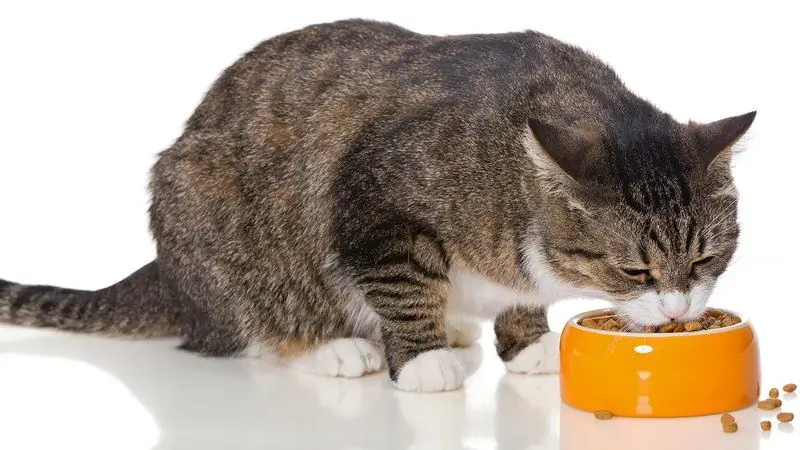
Is it possible and when it is necessary to soak dry food for cats and kittens, how to do it correctly, is it possible to store soaked food. Veterinarian recommendations
A Cat Or A Cat Sneezes: Reasons (including Why A Kitten Has It), What To Do, Expert Recommendations
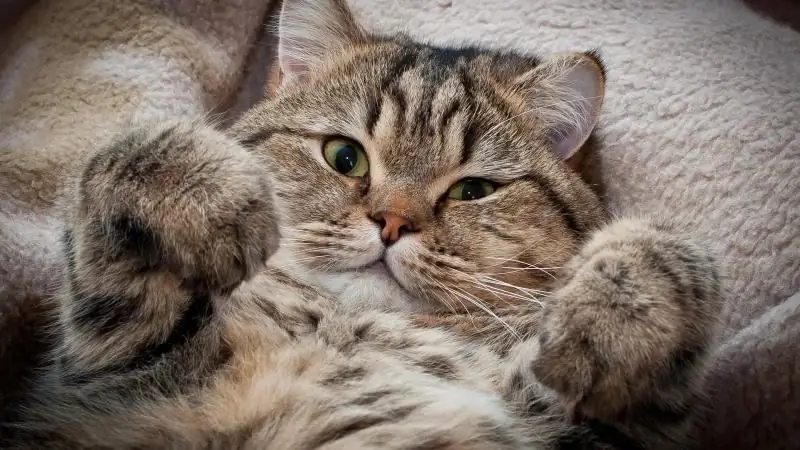
How cats sneeze. Normal sneezing. Sneezing as a symptom of disease. When to see a doctor immediately
Renal Failure In Cats And Cats: Symptoms, Treatment, How To Save A Kitten And An Adult Animal (recommendations Of Veterinarians)
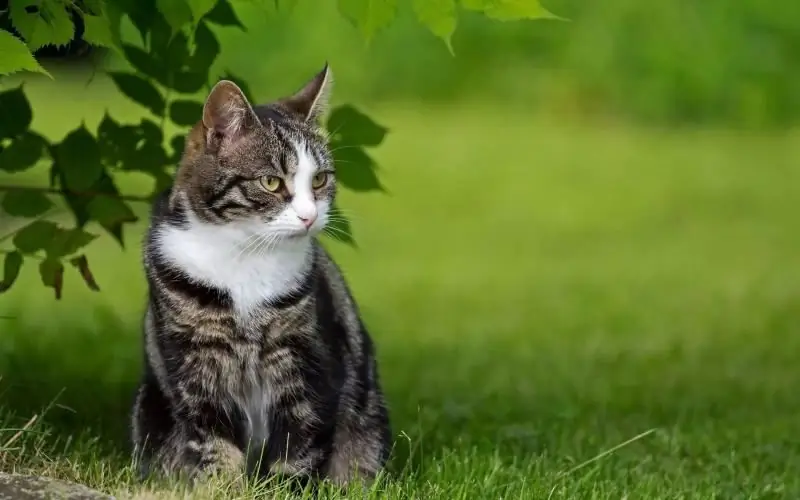
Types of renal failure in cats The reasons for its development. How pathology manifests itself and is diagnosed. Inpatient and home treatment. Prevention
A Cat Or A Cat Vomits With White Foam: The Reasons For Such Vomiting In Kittens And Adult Animals, Diagnosis And Treatment, Recommendations Of Veterinarians
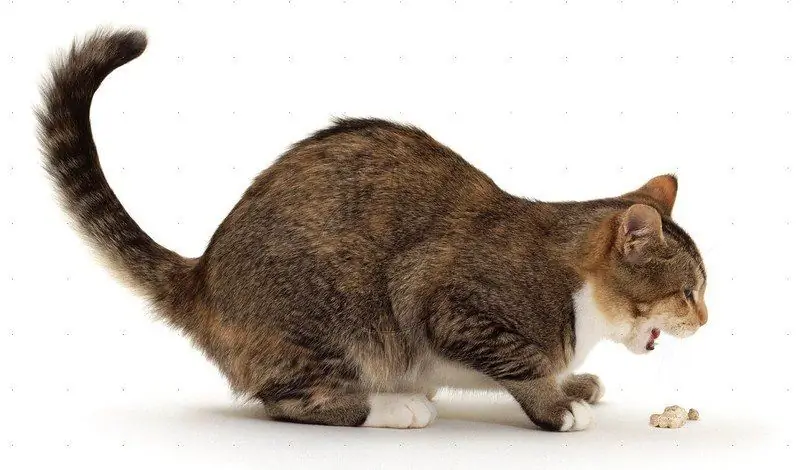
Vomiting of white foam in cats, what can be caused. Additional examination methods for diagnosis. First aid, treatment. Preparations for the prevention of vomiting
Cat's Or Cat's Eyes Fester: Reasons For What To Do And How To Treat A Kitten And An Adult Animal At Home, How To Wash It Out Of Pus
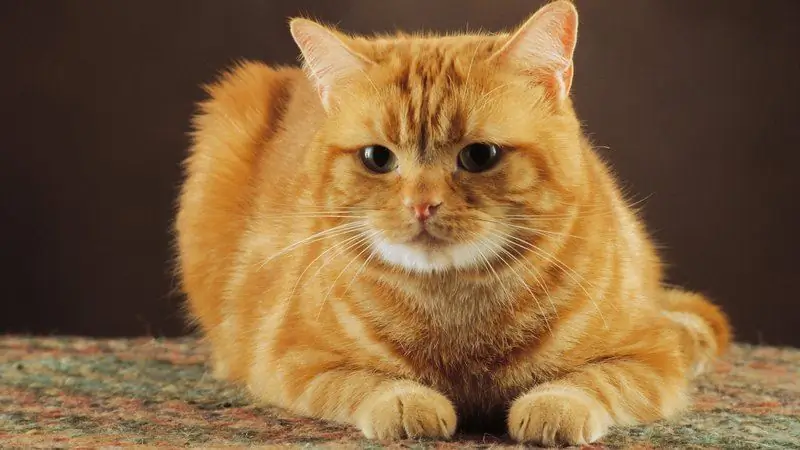
What does purulent discharge from the eyes look like in cats? For what diseases does the symptom occur? How is it treated. Care recommendations. Preventive measures
